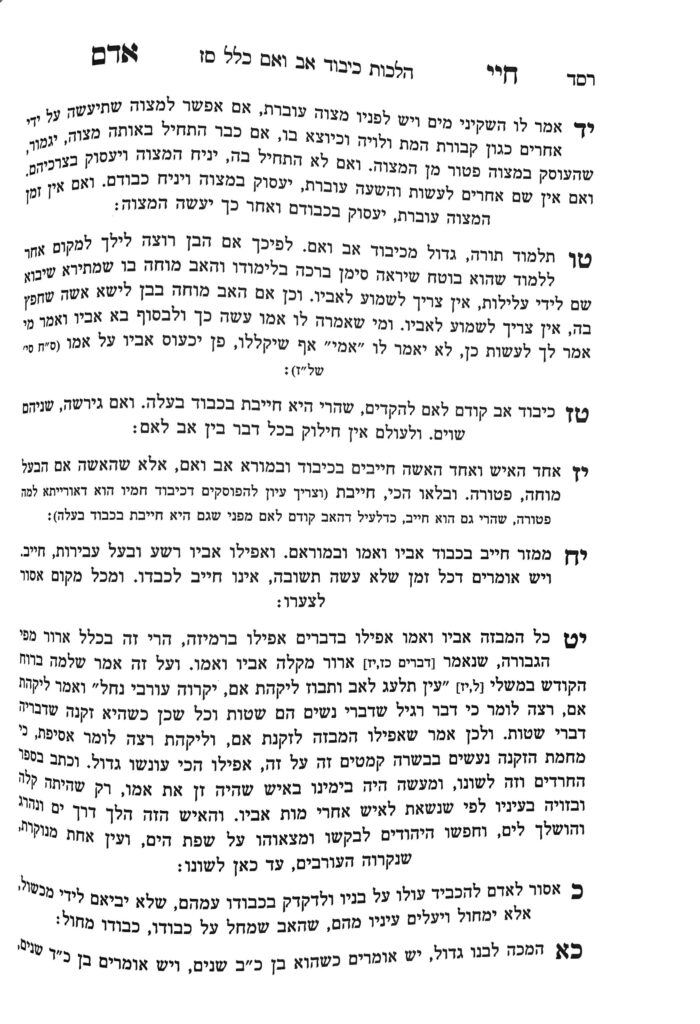We are continuing in siman 14. We have learned that if there is a conflict between kibud av v’eim and a mitzvah overes, if the other mitzvah can be fulfilled by others, the child should do whichever mitzvah they began first, due to the concept of oseik b’mitzvah patur min hamitzvah. If one has started neither, they should perform the kibud av v’eim.
The Chayei Adam qualifies that if one begins kibud av v’eim before the other mitzvah, we only apply oseik b’mitzvah patur min hamitzvah when the other mitzvah can be done without the child’s input. For example, if the mitzvah in question is a kevurah, where, if the child does not do the mitzvah, someone else will do it. However, if the other mitzvah cannot be done without the child’s input, and without the child’s input the mitzvah will be lost completely, the Chayei Adam writes that the child should do the mitzvah which would otherwise go lost, even if the child must interrupt the kibud av v’eim in order to do so.
Thus, there are three variables to consider when weighing between kibud av v’eim and another mitzvah:
-
Whether the other mitzvah is a mitzvah overes or not;
-
Even if it is a mitzvah overes, whether the child has already begun performing kibud av v’eim or not;
-
Even if the child has begun performing the kibud av v’eim, whether the other mitzvah would otherwise be lost without the child’s input.
The Chayei Adam adds that if the other mitzvah is not a mitzvah overes, and one has not yet begun either mitzvah, one would first perform the kibud av v’eim due to its chashivus, and perform the other mitzvah afterwards.
Summary
There are three variables to consider when weighing between kibud av v’eim and another mitzvah:
-
Whether the other mitzvah is a mitzvah overes or not;
-
Even if it is a mitzvah overes, whether the child has already begun performing kibud av v’eim or not;
-
Even if the child has begun performing the kibud av v’eim, whether the other mitzvah would otherwise be lost without the child’s input.
If the other mitzvah is not a mitzvah overes, and one has not yet begun either mitzvah, one would first perform the kibud av v’eim. If they began the other mitzvah first, they would finish the other mitzvah and then perform kibud av v’eim



